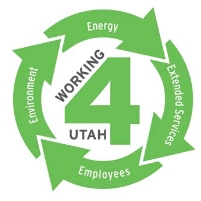Utah Gains from 4-Day Workweek

What started out as an attempt to save money on energy bills has turned into a productivity bonanza for Utah’s state government. In the summer of 2008, as gas prices soared, state officials decided to mandate a four-day workweek for all state civil servants, who had to get used to working 10-hour days instead of the usual eight. Although some were initially unhappy with the change, most (70%) have embraced the new work week, and a recent survey showed the state is benefiting greatly too. Employee leave is down about 9%, meaning productivity is up for state agencies. Paid overtime has also decreased, and with state workers taking Fridays off, fewer motorists are jamming the roads, which has reduced the amount of carbon dioxide pumped into the air. The only downside to the experiment is the energy savings haven’t been what officials had originally hoped. The goal was to cut energy use by 20%, but so far it’s only been 13%. Building managers are still figuring out ways to better shutdown all heating and cooling operations in the large government buildings to maximize the four-day week.
- Top Stories
- Unusual News
- Where is the Money Going?
- Controversies
- U.S. and the World
- Appointments and Resignations
- Latest News
- Trump to Stop Deportations If…
- Trump Denounces World Series
- What If China Invaded the United States?
- Donald Trump Has a Mental Health Problem and It Has a Name
- Trump Goes on Renaming Frenzy






Comments